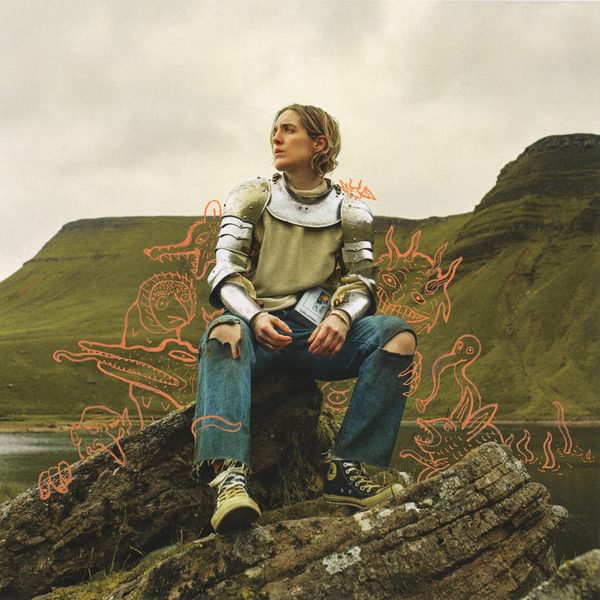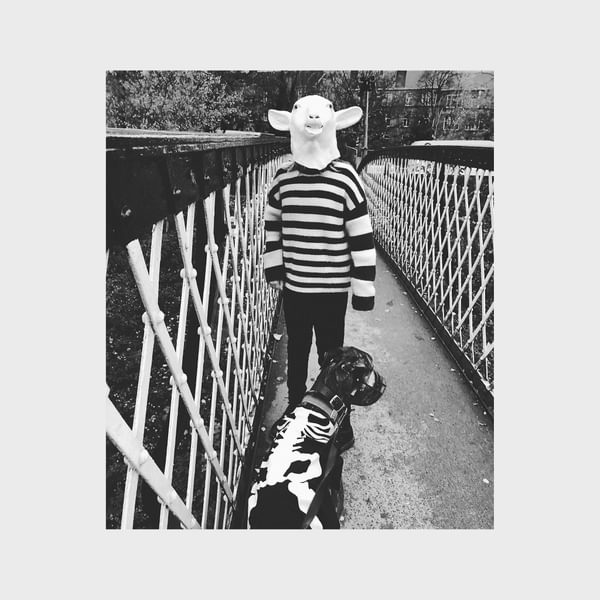
Home is where the Mighty Hoopla is
Fiercely catered towards the LGBTQ+ community and their chronically online allies grazed on social media huns, in-memes, and nostalgic pop acts of the nineties and noughties, Mighty Hoopla is the best way to kick off the UK’s Pride Month in all of its campy glory, writes Thomas Turner.
Sometimes it can feel hard to find a haven in London.
Nestled in the middle of Brockwell Live’s summer festival series – running from the late May to early June, and causing quite the controversy among locals fearing the impact of the festivities on the park – Mighty Hoopla repeatedly emerges as a certain, resplendent utopia.
Stretching over the first weekend of June, the festival temporarily transforms entire districts of London into dystopian wastelands, emptying Clapham and Hackney of its inhabitants as if some sort of eerily desolate sign of an oncoming apocalypse. Parading in sequins, white tanks, and an abundance of jewellery, they march in their droves to Herne Hill like a colony of worker ants stomping to serve their queen. Or, in this case, the queens of UK pop.
South London becomes drunk on the energy. After all, what doesn’t look better with a little bit of glitter? The fanfare of dressing up and in whichever way one wishes to express themselves creates a colourful and perky atmosphere from the moment you catch sight of someone on the same pilgrimage to Brockwell Park. An instant community is forged among the 60,000 festivalgoers, as compliments ping between passersby like ball sports.
Although Mighty Hoopla is first and foremost a music festival, these ceremonies of the event are just as important in attracting its visitors. In fact, it may be one of the only festivals where there is hardly any pressure to turn up early to the stages to secure a good space.
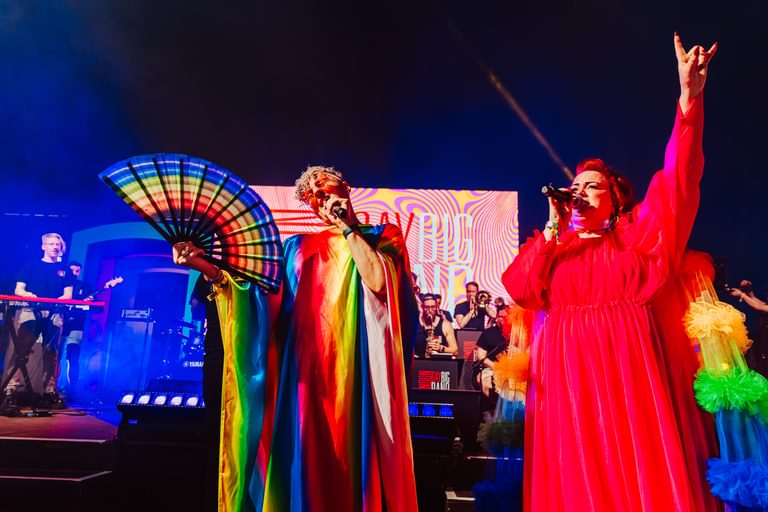
With a lineup predicated on nostalgic artists with a largely unknown back catalogue except for one or two undeniably massive songs – Jojo’s “Leave (Get Out)” and “Too Little, Too Late”, or Vengaboys’ “Boom! Boom! Boom! Boom!” and “We Like To Party”, for instance – it seems most crowds at Mighty Hoopla appear like flash mobs. They gather, move, and disperse in hive mind, amassing in size by the end of each artists’ set, keen to catch their biggest songs. This proves to be a huge positive, though, as there is just so much to soak in across the breadth of the site.
In fact, attendees seem to agree that most of their day is spent wandering around the grounds and enjoying the spaces they stumble upon, including a silent disco set up in a faux house, drag bingo, and a Charli XCX-themed Sweat hour (which was unsurprisingly heaving outside of its 3,000 capacity tent, “The Pleasure Palace”). A few of these amenities are perhaps a little heavily brand-focussed, like the open-top bus emblazoned with Grindr livery, or the House of Schuh runway, but the experiences on offer are second to none.
Arguably, this year’s edition may have offered fewer heavy hitters on the main stage than previous outings with Erika Jayne a niche, although cult-adored, pick for third billing when compared to Alison Goldfrapp, En Vogue, and Slayyyter (herself a replacement for Kim Petras) last year.
There were also some surprising omissions. It was a sure-bet to expect Remember Monday to grace the main stage after their jury-romping Eurovision entry, “What The Hell Just Happened?”, and although Jake Shears did make a surprise appearance during Kesha’s fantastic closing set, the wider Scissor Sisters troupe felt notably absent after celebrating a successful ten-stop reunion tour.
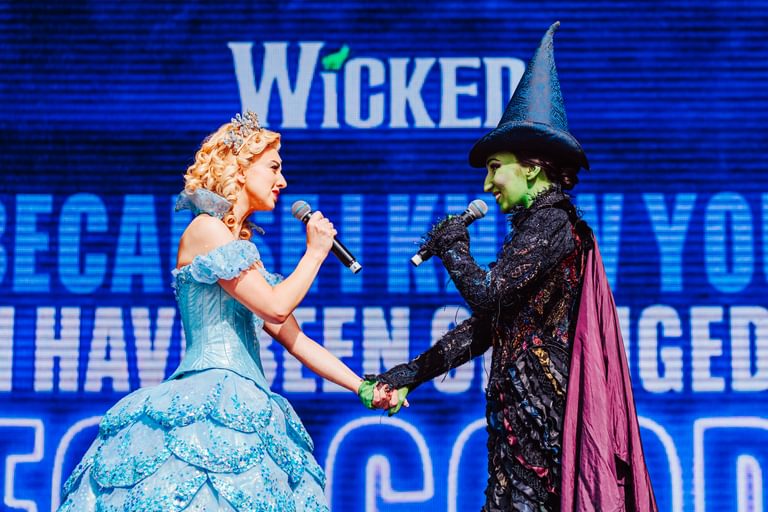
That being said, the line-up is still engorged with the signature Mighty Hoopla glee, and supremely in touch with the ripples of online queer culture (see: the rousing Wicked: The Musical medley, a blistering showing from newcomer Alice Chater, or Tiara Skye’s effervescence as a main stage host). It also makes thorough efforts to raise the profile of underrepresented groups, from Girls Don’t Sync’s DJ set to platforming a plethora of queer talent and drag artists, incorporating local performers as well as known favourites from RuPaul’s Drag Race.
The best performances of Mighty Hoopla prove to be those artists who seamlessly embody the festival’s spirit: whether part of the community, or relentlessly standing by it in trying political times. It is clearer than you might think to distinguish those who understand the festival’s mission of creating a safe, celebratory space versus those who are simply in a new music cycle and using it as an opportunity to push their latest tracks. “Hoopla artists need to realise people are there for Hoopla, and not them,” one attendee quips.
One of the clear stand-out sets of the weekend comes from JADE, who has repeatedly stated she strives to impress the LGBTQ+ community in everything she does. “Performative allyship? Fuck you!” she chants during her latest single “FUFN”, before also directing the aim towards “misogynoir,” “transphobes,” and “J.K. Rowling” to much acclamation from the crowd. Visibly emotional talking about the magic of Mighty Hoopla as a long-time attender in her own right, her time on stage feels truly monumental.

It is her authenticity that grounds the set with a feeling of belonging. Steeped in all the correct pop culture knowledge, she makes referential jokes between breath-stealing vocal displays of tracks from her upcoming album, That’s Showbiz Baby!. “Every year Glyn… one of the runners and organisers of this incredible event says ‘Jade, whenever you’re ready…’ and this year I finally said ‘I’m ready.’” she smirks, a callback to Cheryl’s infamous X Factor quote.
It’s a similar story with Sunday’s headliner, Kesha, who opens her set by declaring, “First things first, we do not stand abuse in my house” before delighting fans to her now-canonised pop gems, including “We R Who We R”, “Blow”, and “Die Young” in a PROTECT THE DOLLS T-shirt. With such an adored back catalogue, it would be easy enough for her to rely on the music, but she takes every opportunity to connect with the audience.
“This last ten years has been very brutal. The thing that kept me going is I knew there were so many people fighting for me. And I just want to return the favour to you and to let you all know that the same way you fought for me, I vow to fight for each and every one of you,” she pledges. “I see what the government is trying to do to our community. They are trying to make us hate ourselves and feel unlovable, but you are so fucking loved.”
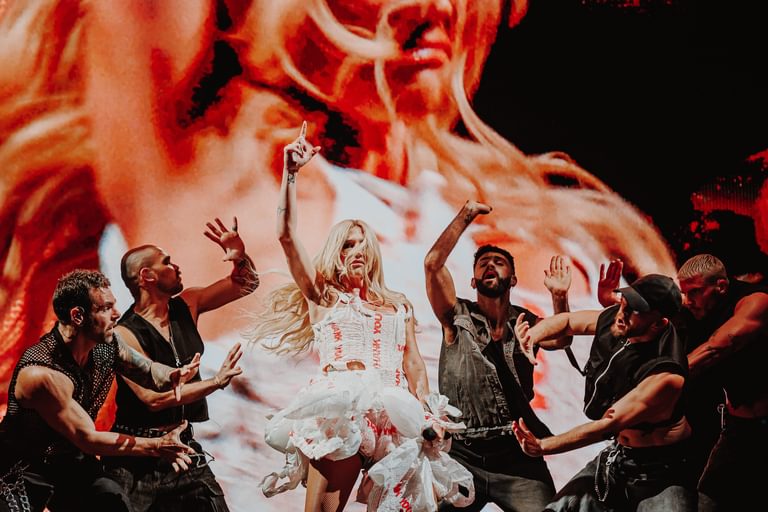
These are the moments of bona fide, unreproducible utopia at Mighty Hoopla. Chaotic to its core, and with a crackling, fizzy dynamism, a more-is-more mentality is employed in every aspect of its curation, and the audience is always front of mind. Simply put, no other festival is brave enough to find the space for a posse of M3GAN dolls to have a full five minute set on the main stage, before Jamelia treats listeners to a rendition of the now 22-years-old evergreen hit, “Superstar”. Props must be given where props are deserved.
If this weekend has taught us anything, other than that the sound of a fan clacking is a direct affront to the ear drums, it’s that Mighty Hoopla is where the heart is.
Get the Best Fit take on the week in music direct to your inbox every Friday
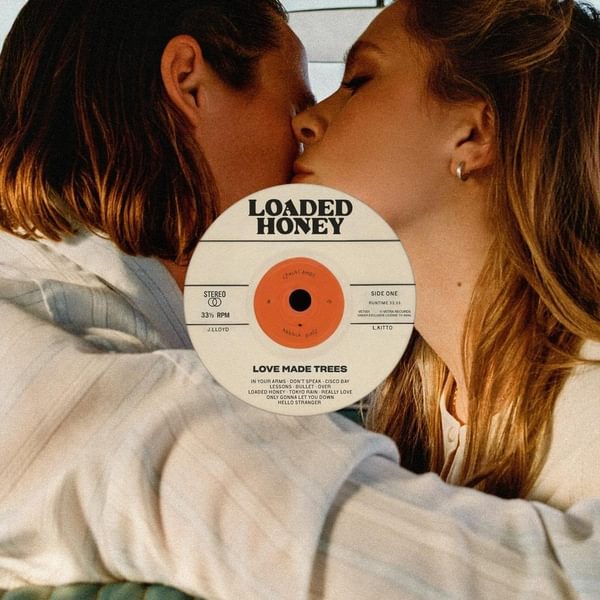
Loaded Honey
Love Made Trees
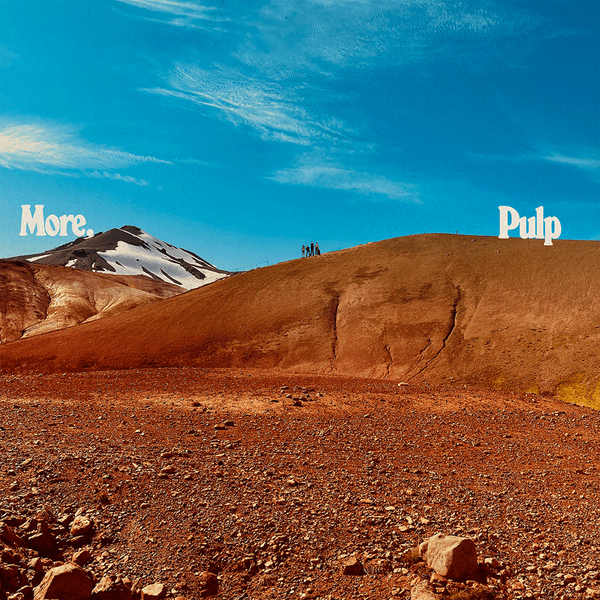
Pulp
More
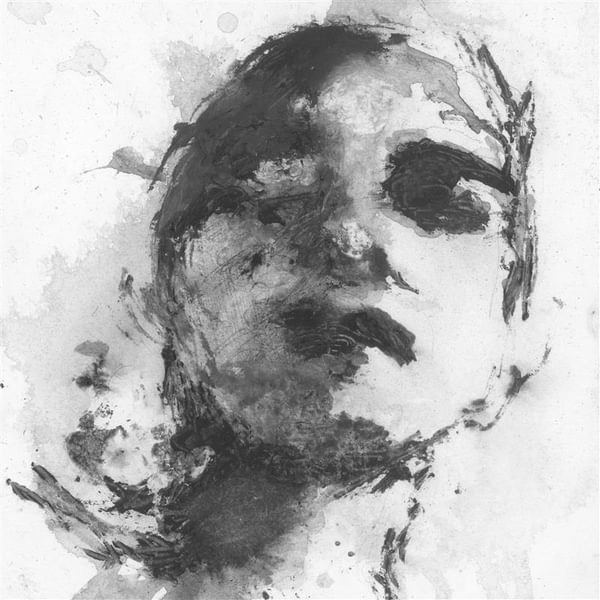
Lucy Gooch
Desert Window
